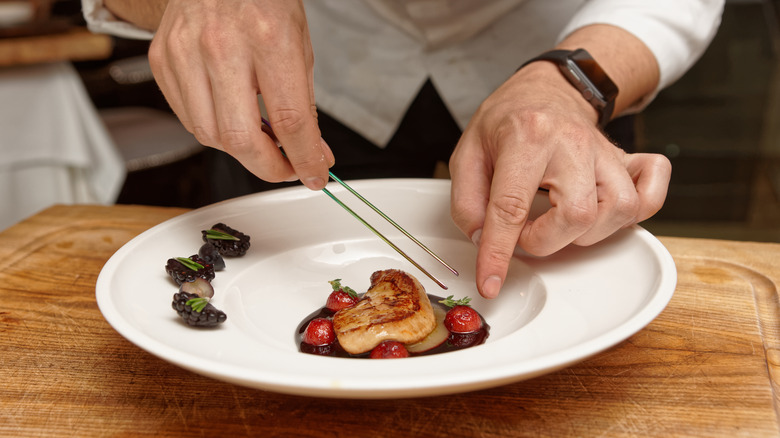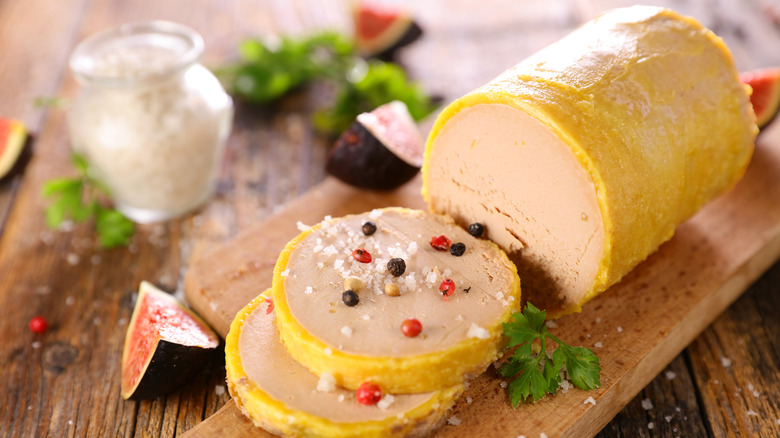The Fancy Food King Charles Banned From Royal Menus
When Today spoke with Darren McGrady, former chef to the British royal family, in 2017, he opened up about the foods the monarch, princes, and duchesses enjoyed. Duchess Kate has a fondness for spicy curries and a classic British dessert, sticky toffee pudding. And Queen Elizabeth II was partial to a slice of chocolate biscuit cake with her afternoon tea.
But there are also those items and ingredients that are verboten in the royal dining program. Express notes that the queen was leery of meat on the rare side, preferring her cuts cooked through. Her majesty also put the kibosh on starchy carbs, all shellfish, garlic, and crusts on her sandwiches. However, there is one particular food that her son, King Charles III, banned from royal menus.
King Charles is not a fan of foie gras
On September 8, 2022, Queen Elizabeth II died. Great Britain and 14 other nations have a new head of state — King Charles III — and Buckingham Palace has a new resident. With that comes new directives for the household staff, including the royal chefs. But the king has actually been calling shots in the royal kitchens since before he was king, banning chefs from making one particular dish over a decade ago.
King Charles III has a big problem with foie gras. The King's distaste for the product is such that the Daily Mail reported in 2008 that he even considered rescinding the royal warrant granted to a favored shop — Gloucestershire's House of Cheese — on the grounds that they traffic in foie gras. Now that he's in charge, you surely won't find the French delicacy at Buckingham.
But King Charles' issue with the meaty spread goes beyond taste or texture, and he is not alone in wanting to see foie gras gone for good.
Tasty or torture
Foie gras is, according to Britannica, the fattened liver of a duck or goose. The name is literally French for "fat liver." It can be prepared in a number of ways, from cold pâtés, terrines, and pies, to seared slices, accompanied by toast points and sweet jams, compotes, or syrups.
According to Marie Claire, King Charles III banned the product from royal households over concerns regarding animal welfare. The decision was made after a resident of Bristol wrote to the then-prince describing the animal welfare concerns surrounding the controversial product. Per People for the Ethical Treatment of Animals (PETA), His Royal Highness' Deputy Master of the Household replied to the letter writer with assurances that the product was banned.
The force-feeding process that makes this fattened liver — causing it to swell many times its normal size — is what the Animal Legal Defense Fund notes many people take issue with. The ALDF claims that it can result in injuries to the beaks and throats of the birds and even cause them to become so heavy that their legs can no longer support their weight. Of course, there are those who don't see foie gras production as universally horrific. On Serious Eats, J. Kenji Lopez-Alt explores the ethics of the issue and tours a farm that takes pains to care for its animals.


